How important is the smoke point of cooking oil to our health?
How important is the smoke point of cooking oil to our health?
Each different oil has a different smoke point. An oil's smoke point is the temperature at which it begins to smoke, decompose, and potentially release toxic chemicals. Meaning, when the oil reaches its smoke point, it begins to oxidize and release free radicals, harmful compounds that cause oxidative stress in your body, which can lead to accelerated aging and diseases. Therefore, you should consider the smoking point when choosing cooking oil for the dishes you will prepare.
Most of us use cooking oil very often for food preparation purposes, including meat, eggs, vegetables, salads, sauces and more. We always tend to choose oils that are good for our health, this is reasonable and obvious. However, the healthiness of oils on labels is only part of the story. It's important to consider whether the oil is still healthy when you heat it while cooking. This is because the smoking point of each oil determines. Cooking oil has a smoke point or temperature at which it is no longer stable, so you should not use cooking oil to cook at temperatures higher than the smoke point of each type of oil.
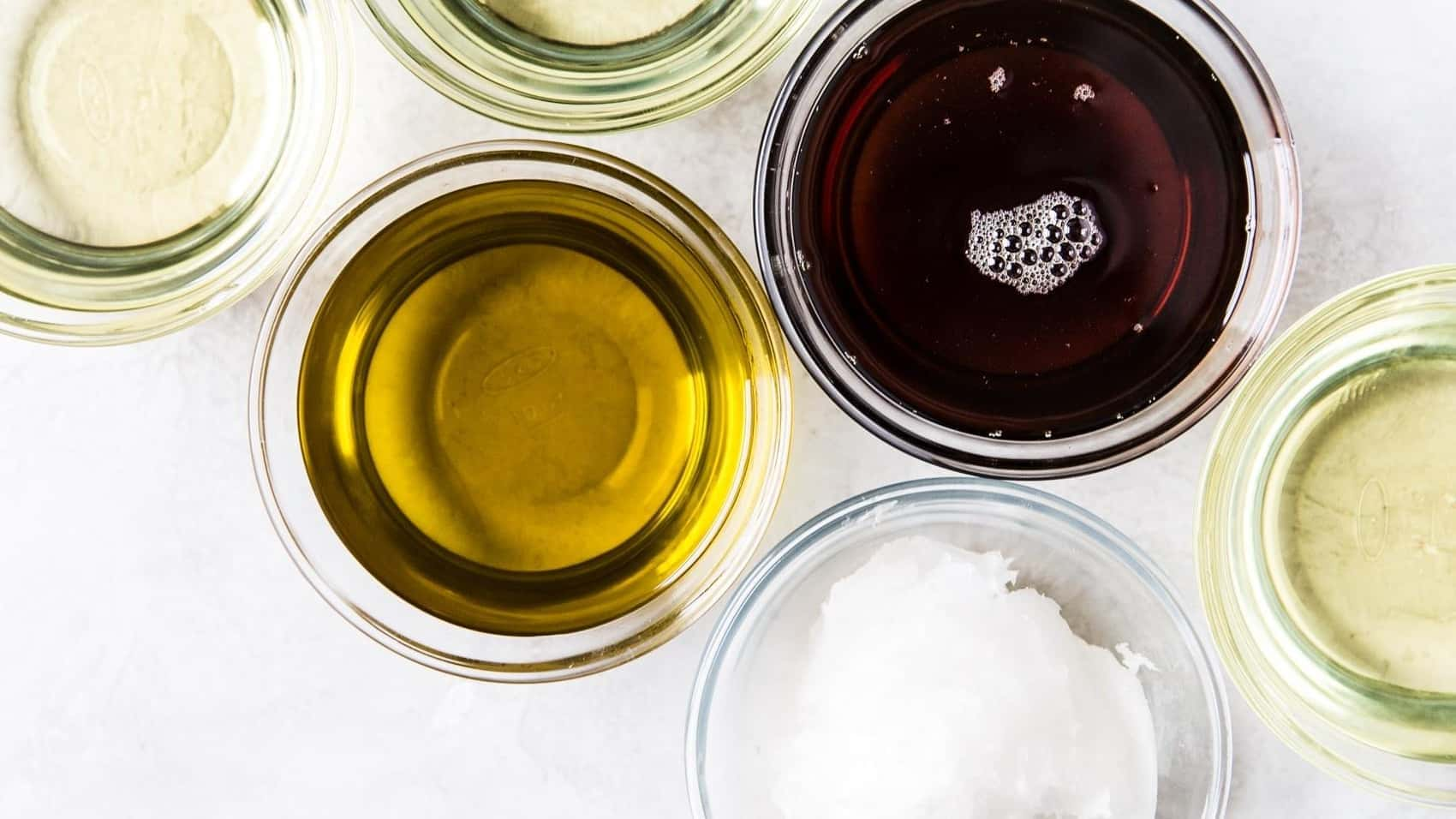
WHY GOOD COOKING OILS MATTER
When cooking oils are heated, particularly at high heat, they eventually reach their smoke point. This is the temperature at which the oil is no longer stable and begins to break down. When oil breaks down, it begins to oxidize and release free radicals. These compounds can have negative health consequences, potentially causing cellular damage that may lead to disease development.
Furthermore, oils that reach their smoke point release a substance called acrolein, which can create an unpleasant burnt flavor. What’s more, airborne acrolein may be dangerous to your lungs. It’s also important to consider the amount of processing a cooking oil has undergone, as this can affect its quality.
Highly refined oils have a uniform appearance and tend to be less expensive, whereas oils that have undergone minimal processing may contain sediment particles, have a cloudier appearance, and maintain more of their natural flavor and color.
Unrefined oils may contain more nutrients, but they’re also more sensitive to heat and may go rancid more quickly than highly processed cooking oils. Refined oils tend to have higher smoke points than unrefined oils.
Some refined oils are extracted using chemical solvents, while other oils are extracted by pressing plants or seeds. Many health-conscious consumers avoid chemically extracted oils and prefer those made by pressing, such as cold pressed olive oil or coconut oil.
Keep in mind that oils from different sources can vary significantly in their nutritional composition, including the proportion and types of fatty acids they contain. This can significantly influence health effects. There are pros and cons to using refined and unrefined oils, as well as oils of varying smoke points. The way of processing also affects the quality of the oil.
Some healthier cooking oils that can withstand higher temperatures include olive oil, coconut oil, avocado oil, sesame oil, and safflower oil. Other oils to avoid for high temps include flax oil, palm oil, walnut oil.
1. Olive oil
The smoke point of olive oil is approximately 350°F (176°C), which is a common cooking temperature for many recipes, particularly those for baked goods.
Olive oil has long been the gold standard for cooking oils in kitchens across the globe. This is largely because it’s versatile. It has a subtle peppery or grassy flavor, and you can use it for baking, sautéing, or cold dressings.
Olive oil is rich in vitamin E, which acts as an antioxidant. The primary fatty acid in olive oil is a monounsaturated fat called oleic acid, which studies have shown may have anticancer and anti-inflammatory properties.
Additionally, olive oil contains antioxidant compounds called oleocanthal and oleuropein. These may have anti-inflammatory effects, including helping prevent LDL (bad) cholesterol from oxidizing.
Research has found that olive oil contains heart-healthy compounds and may help prevent conditions like obesity, metabolic syndrome, and type 2 diabetes.
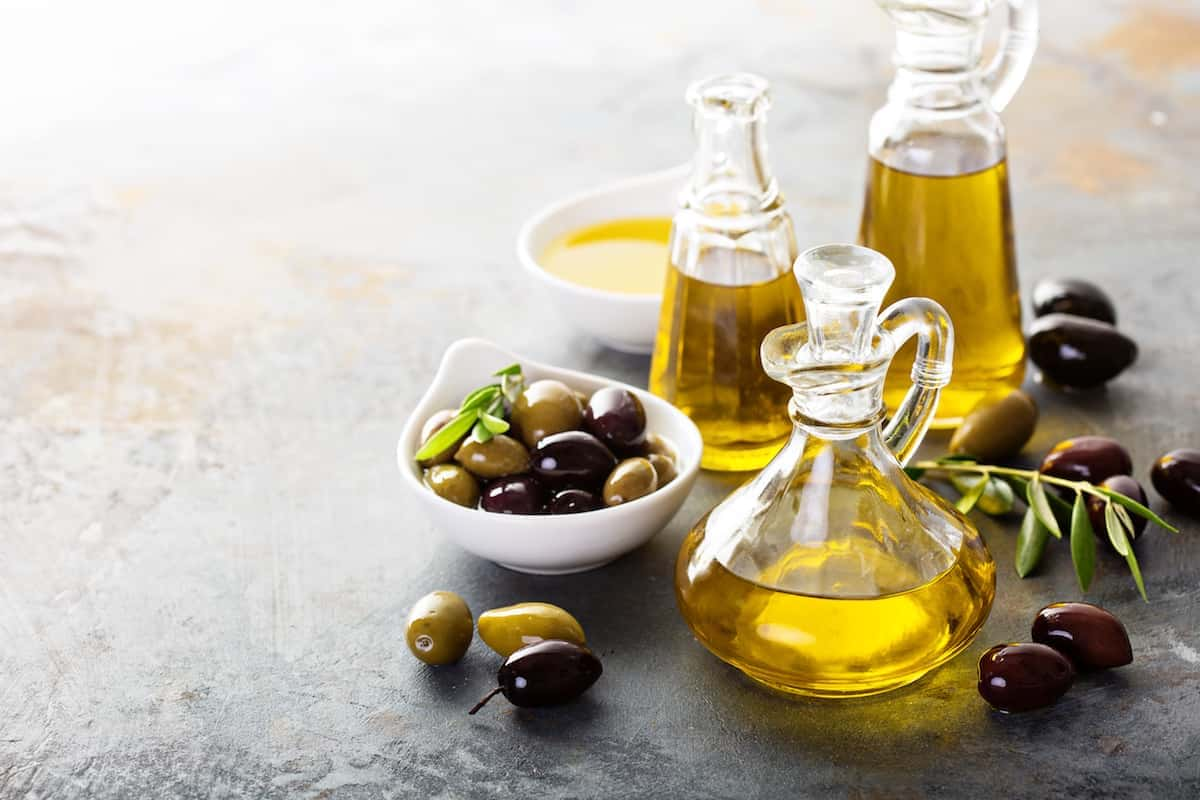
2. Coconut oil
Coconut oil has a medium smoke point of approximately 350°F (176°C). Coconut oil is a more controversial option in the health community.
While it contains mostly saturated fats, which may be associated with a higher risk of heart disease, some studies show that it contains health-promoting compounds that fight inflammation and oxidative damage.
Plus, coconut oil contains medium-chain triglycerides and lauric acid, which may offer benefits for heart health and weight loss.
Overall, it’s probably best to use coconut oil in moderate amounts until the research on its health effects is clearer. It works well for baking and in high heat fry cooking.
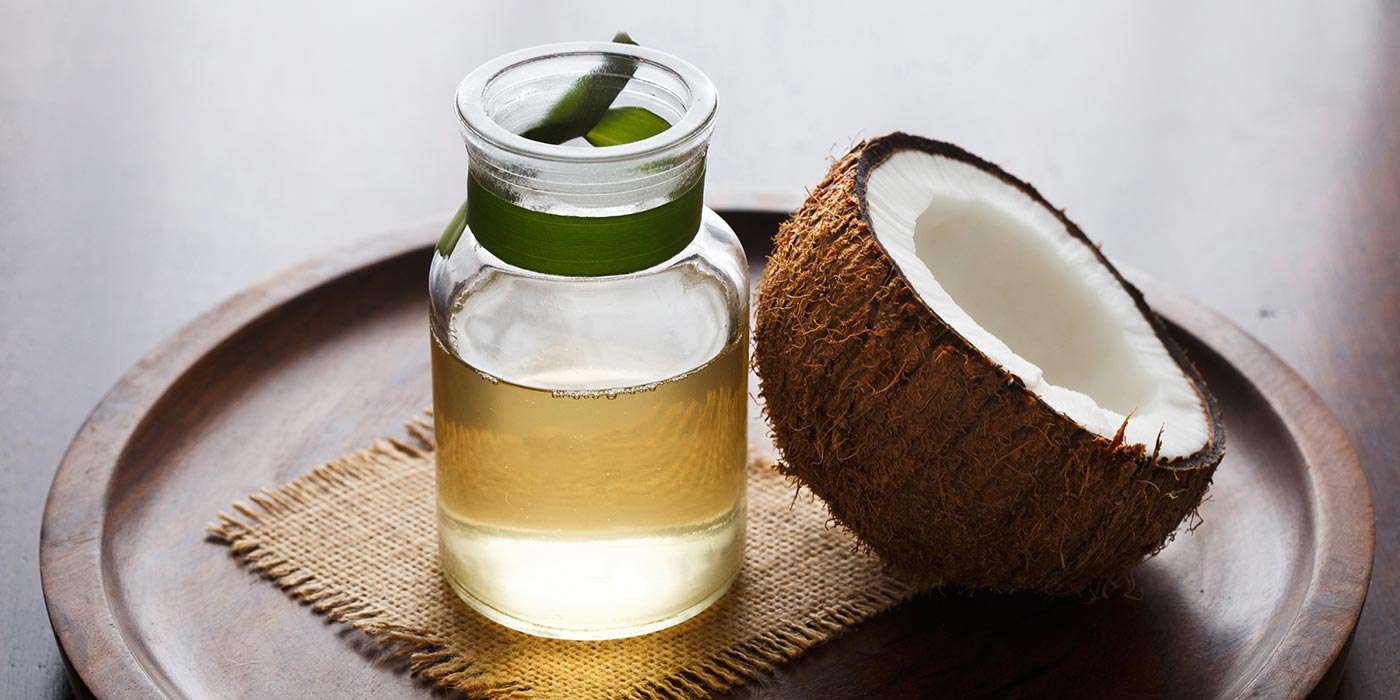
3. Avocado oil
Avocado oil has a smoke point of approximately 520°F (271°C), making it ideal for high heat cooking like deep frying.
It has a neutral, avocado-like taste, and you can use it similarly to olive oil. It also has a nutritional composition similar to that of olive oil, with a high percentage of the heart-healthy fat oleic acid. Some animal studies have indicated that compounds in avocado oil may help lower blood pressure, LDL (bad) cholesterol, and triglycerides, high levels of which may increase your risk of heart disease.
Avocado oil may even be beneficial for reducing painful joint inflammation, enhancing the absorption of other nutrients, and protecting cells against free radical damage. One review concluded that it maintains its nutritional quality at low and high temperatures.
The quality and nutritional makeup of avocado oil depend on various factors, including where the avocados were grown and the extraction method used.
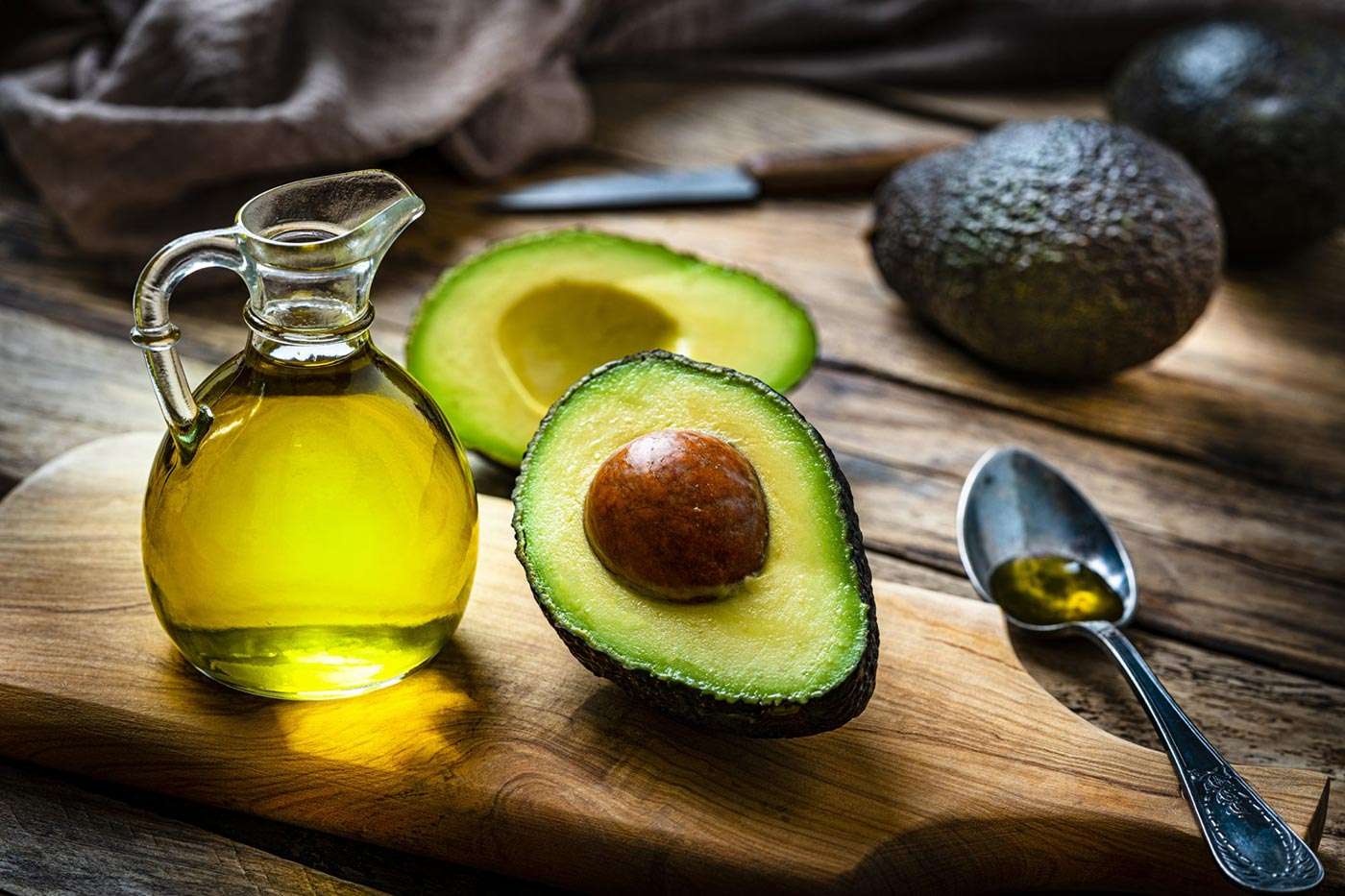
4. Sesame oil
Sesame oil has a medium-high smoke point of approximately 410°F (210°C). It’s high in the heart-healthy antioxidants sesamol and sesaminol, which may have various benefits, including potential neuroprotective effects against certain diseases like Parkinson’s.
Plus, one small study among 46 people with type 2 diabetes found that using sesame oil for 90 days significantly improved fasting blood sugar and long-term biomarkers of blood sugar management.
Sesame oil works well for sautéing, general-purpose cooking, and even as a salad dressing. It offers a mild nutty flavor that can work well in a number of stovetop dishes. Note that regular sesame oil differs from toasted sesame oil. The latter has a more amplified nutty flavor, which makes it more suitable for finishing a dish rather than cooking one.
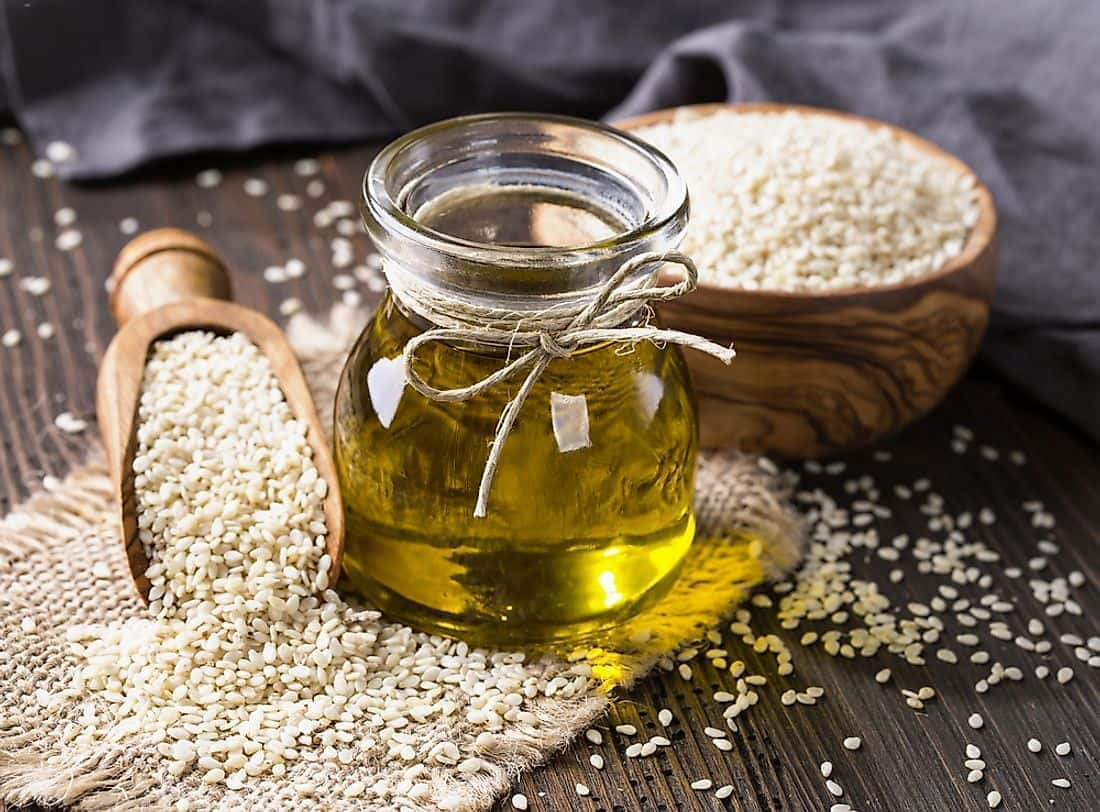
5. Safflower oil
The smoke point for safflower oil is higher, sitting at approximately 510°F (265°C). Safflower oil is made from the seeds of the safflower plant. It’s low in saturated fat, containing a higher percentage of unsaturated fatty acids.
One study found that using safflower oil daily may improve inflammation, blood sugar management, and cholesterol among postmenopausal women with obesity and type 2 diabetes. This oil offers a neutral flavor that works well for marinades, sauces, and dips, as well as barbecuing and frying on the stovetop.

OILS YOU SHOULDN’T USE IN HIGH HEAT COOKING
Not all oils are stable enough or intended for use in cooking, particularly in high heat preparations. The following oils are best to avoid when it comes to high heat cooking:
1. Fish or algae oil. These are intended to be omega-3-rich dietary supplements that you should take cold and in small doses. Don’t use these products for cooking purposes.
2. Flax oil. While high in the heart-healthy unsaturated fatty acid alpha-linolenic acid (ALA), this oil has a low smoke point at around 225°F (107°C), and you should reserve it for cold uses like salad dressings.
3. Palm oil. Health-wise, palm oil is calorie-dense and fairly similar to some other oils, such as coconut oil. The main problem here is ethical, as the production of palm oil has been strongly linked to rainforest destruction and a loss of biodiversity.
4. Walnut oil. This oil is high in ALA and offers some anti-inflammatory and potential anticancer benefits. However, it is also best to reserve for cold preparations like salad dressing. It has a lower smoke point, sitting around 320°F (160°C).
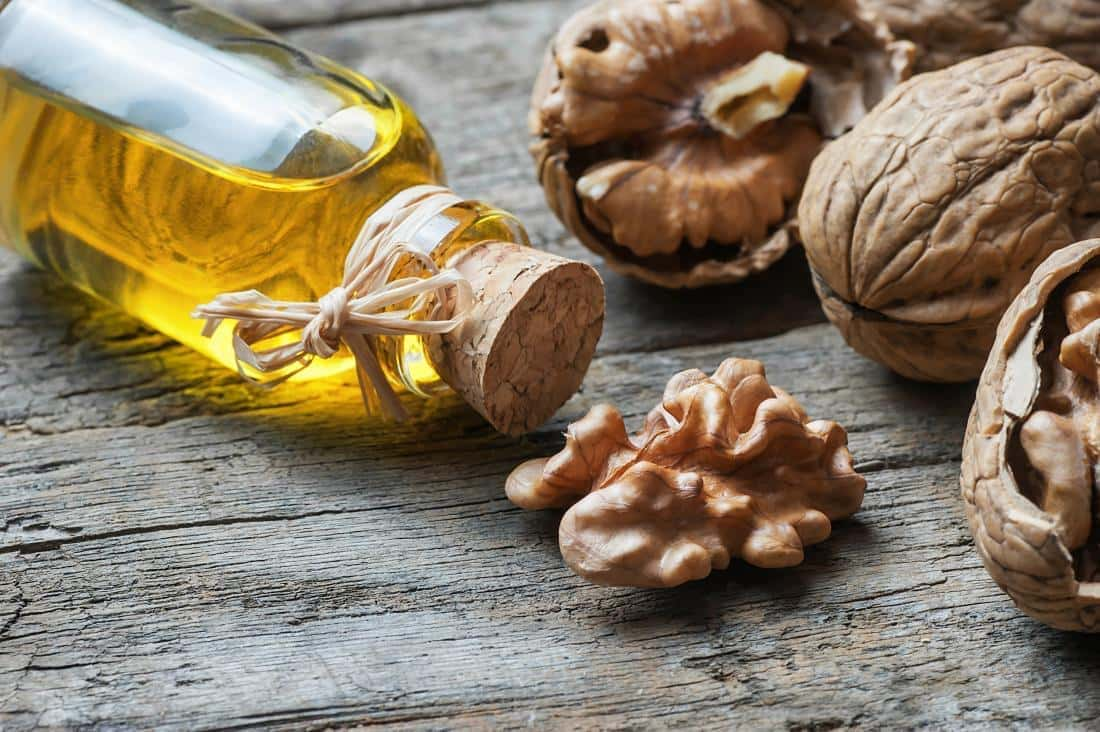
Compiled and penned by Crocus Media
Products

Desiccated Coconut
Desiccated coconut is mainly used as an ingredient in confectionery and bakery industry. It’s used in making cookies, cakes, pastries, desserts, puddings, or any other coconut based recipes.


.jpg)
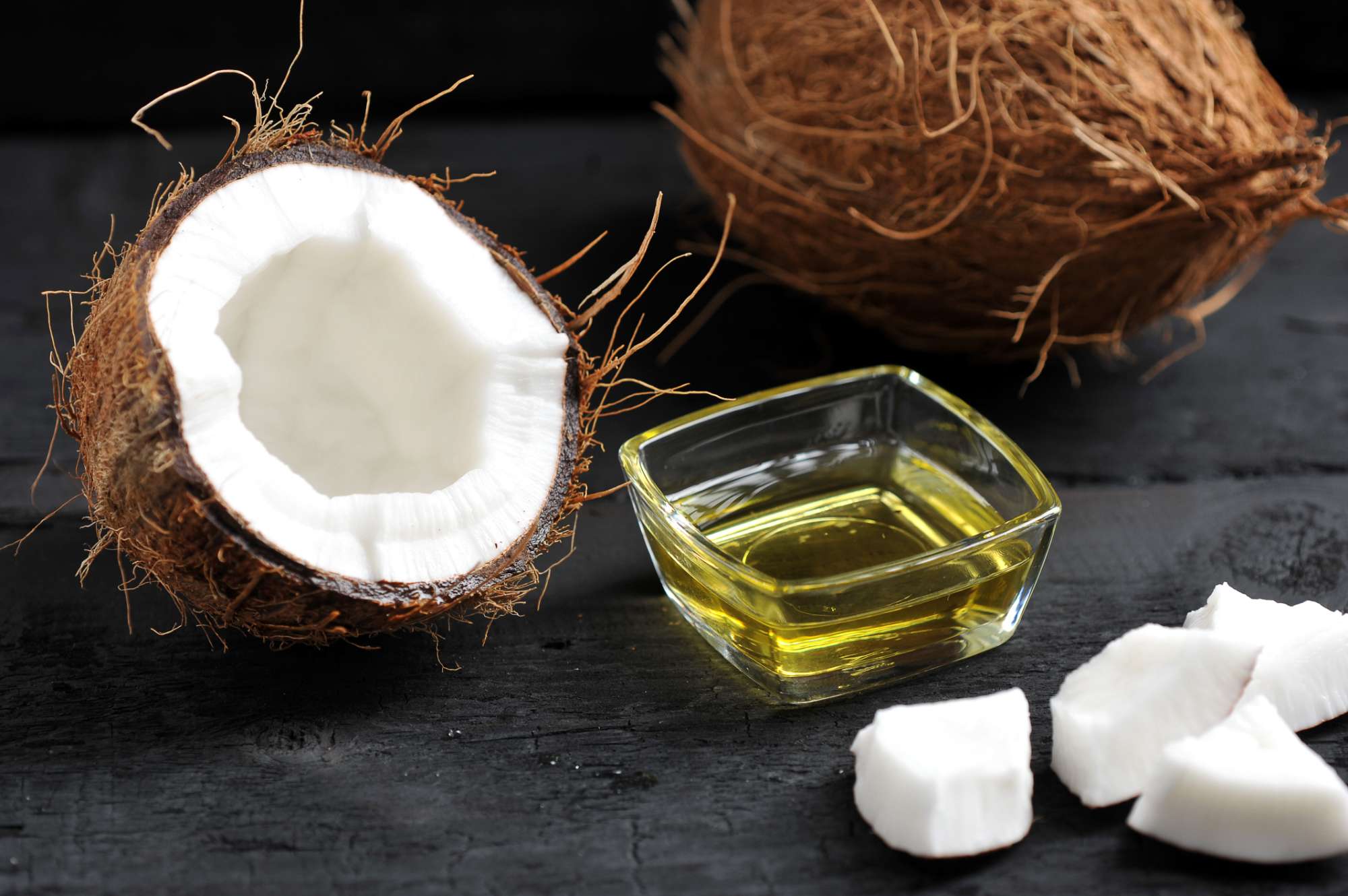
.jpg)